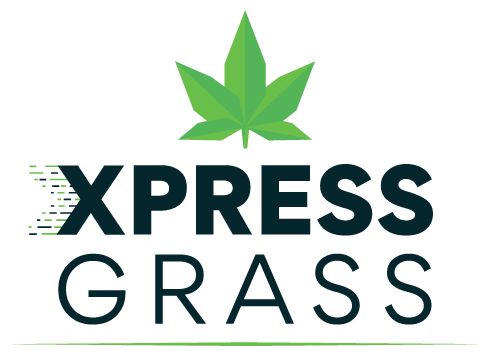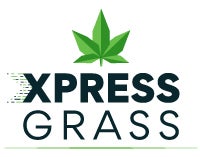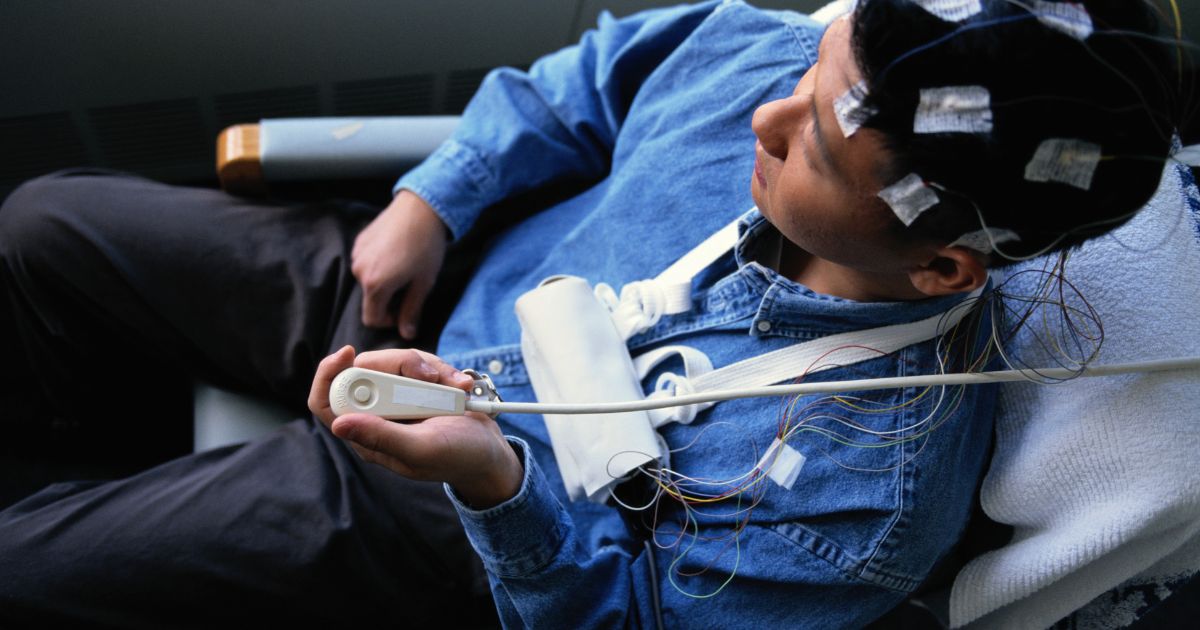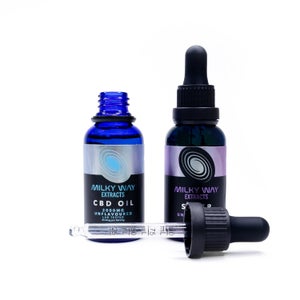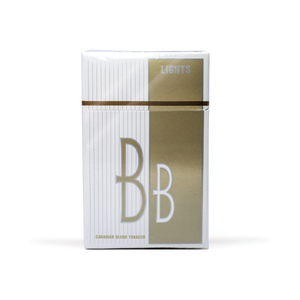CBD Oil for Epilepsy in Canada: Understanding Its Potential Benefits
Table of Contents
- Understanding CBD Oil
- CBD Oil and Epilepsy: Scientific Evidence
- Using CBD Oil for Epilepsy in Canada
- Patient Stories and Testimonials
- Conclusion
- Frequently Asked Questions
For years, extensive research has been done about the benefits of CBD oil for epilepsy in Canada. In this comprehensive guide, we take a closer look at the therapeutic potential of CBD oil as a treatment option for epilepsy, focusing specifically on the Canadian context.
From understanding the legal landscape to exploring the scientific evidence, personal testimonials, and dosage recommendations, we aim to provide a holistic view of CBD oil’s efficacy in managing epilepsy. Join us as we navigate the realm of alternative medicine and shed light on the promising possibilities that CBD oil holds for individuals living with epilepsy in Canada.
Understanding CBD Oil
What is CBD Oil? Definition and Extraction Process
CBD oil is a natural extract derived from the cannabis plant, specifically from the hemp variety. It is made by extracting cannabidiol (CBD) from the plant and diluting it with a carrier oil, such as coconut or hemp seed oil. CBD is one of the many compounds, known as cannabinoids, found in cannabis plants. Unlike THC (tetrahydrocannabinol), another well-known cannabinoid, CBD does not produce psychoactive effects.
The extraction process for CBD oil involves various methods, such as CO2 extraction, ethanol extraction, or solvent extraction. CO2 extraction is considered the cleanest and most efficient method, as it ensures the highest quality and purity of the final product. It involves using pressurized carbon dioxide to extract CBD from the plant material, resulting in a concentrated and potent oil.
Legal Status of CBD Oil in Canada
In Canada, the legal status of CBD oil is regulated under the Cannabis Act. Since October 2018, cannabis and its derivatives, including CBD oil, have been legal for both medical and recreational use. However, there are specific regulations and restrictions in place to ensure consumer safety and product quality. It is important to purchase CBD oil from licensed producers or retailers who comply with Health Canada’s guidelines.
Different Types of CBD Oil Available
CBD oil comes in different forms and variations, offering consumers a range of choices based on their preferences and needs. The three main types of CBD oil are full-spectrum, broad-spectrum, and isolate.
- Full-spectrum CBD oil contains all the naturally occurring compounds found in the cannabis plant, including CBD, THC, other cannabinoids, and terpenes. It is believed that these compounds work synergistically, creating an “entourage effect” that enhances the potential therapeutic benefits.
- Broad-spectrum CBD oil is similar to full-spectrum but undergoes additional processing to remove THC, making it THC-free while still retaining other beneficial compounds.
- CBD isolate is the purest form of CBD, isolated from all other cannabinoids and compounds. It contains only CBD and does not have any trace amounts of THC or other cannabinoids.
The CBD-THC Ratio and its Significance in Epilepsy Treatment
The ratio of CBD to THC in a CBD oil product is an important factor to consider, particularly for individuals with epilepsy. THC is the psychoactive compound responsible for the “high” associated with cannabis use. In epilepsy treatment, higher CBD to THC ratios are commonly preferred to minimize the psychoactive effects while maximizing the potential therapeutic benefits of CBD.
The ideal CBD-THC ratio for epilepsy management may vary for each individual. It is recommended to consult with a healthcare professional experienced in cannabis-based treatments to determine the most appropriate ratio based on the person’s specific needs and response to treatment.
How CBD Oil Works in the Body to Potentially Reduce Seizures
CBD oil interacts with the body’s endocannabinoid system (ECS), a complex network of receptors found throughout the body. The ECS plays a crucial role in regulating various physiological functions, including neurological activity. CBD interacts with the ECS, potentially modulating neurotransmitter release, reducing inflammation, and exerting neuroprotective effects.
Studies suggest that CBD may have anticonvulsant properties, making it a potential candidate for managing seizures in epilepsy. However, the exact mechanisms of action are still being researched, and further studies are needed to fully understand how CBD oil works to potentially reduce seizures in individuals with epilepsy.
CBD Oil and Epilepsy: Scientific Evidence
Overview of Scientific Studies Conducted on CBD Oil and Epilepsy Treatment
Over the past decade, there has been a growing body of scientific research exploring the potential therapeutic effects of CBD oil in the treatment of epilepsy. Numerous studies, clinical trials, and anecdotal evidence have shed light on the efficacy and safety of CBD oil for managing seizures in individuals with epilepsy.
Specific Research Findings and Outcomes
Several key studies have shown promising results regarding the use of CBD oil in epilepsy treatment. One landmark study published in The New England Journal of Medicine investigated the effects of CBD on Dravet syndrome, a severe form of epilepsy that begins in infancy. The study found that CBD significantly reduced the frequency of seizures in patients compared to the placebo group.
Another notable study focused on Lennox-Gastaut syndrome, a rare and severe form of epilepsy characterized by multiple types of seizures. The research revealed that CBD oil led to a significant reduction in seizure frequency and improved overall seizure control in patients with this syndrome.
Efficacy of CBD Oil in Reducing Seizures in Certain Epilepsy Syndromes
CBD oil has shown particular efficacy in reducing seizures in specific epilepsy syndromes. For example, Epidiolex, a pharmaceutical-grade CBD oil, has been approved by the U.S. Food and Drug Administration (FDA) for the treatment of Dravet syndrome, Lennox-Gastaut syndrome, and tuberous sclerosis complex-related seizures.
Furthermore, CBD oil has demonstrated positive effects in other forms of epilepsy, such as focal seizures and epileptic spasms. Research suggests that CBD may help decrease the frequency and intensity of seizures, leading to improved seizure control and a better quality of life for individuals living with epilepsy.
Limitations and Ongoing Research
While the scientific evidence on CBD oil and epilepsy is promising, it is important to acknowledge the limitations and ongoing research in this field. Many studies have focused on specific epilepsy syndromes and may not be applicable to all forms of epilepsy. Additionally, the optimal dosage, CBD-THC ratios, and long-term effects of CBD oil are still being investigated.
Researchers are actively exploring the mechanisms of action through which CBD exerts its anticonvulsant effects. They are also investigating potential drug interactions, side effects, and the overall safety profile of CBD oil for epilepsy treatment. Continued research and clinical trials are necessary to provide a more comprehensive understanding of CBD’s potential in managing epilepsy.
Importance of Consulting with Healthcare Professionals for Personalized Advice
It is crucial for individuals considering CBD oil as a treatment for epilepsy to consult with healthcare professionals experienced in epilepsy management and cannabis-based therapies. Healthcare professionals can provide personalized advice, evaluate individual circumstances, and determine the most suitable CBD oil products, dosages, and administration methods.
Collaboration between patients, caregivers, and healthcare professionals ensures comprehensive epilepsy management and supports informed decision-making. Regular monitoring, adjustment of treatment plans, and adherence to medical guidance are essential for optimizing the therapeutic benefits of CBD oil while minimizing potential risks.
Using CBD Oil for Epilepsy in Canada
Guidance on Obtaining CBD Oil in Canada
When considering the use of CBD oil for epilepsy treatment in Canada, it is important to navigate the legal requirements and ensure access to safe and regulated products. CBD oil is legal in Canada, but it must be obtained from licensed producers or authorized retailers.
To obtain CBD oil, individuals with epilepsy may require a medical prescription from a healthcare professional. The prescription allows them to access CBD oil products from licensed producers, who are authorized to produce and distribute medical cannabis products in compliance with Health Canada regulations.
Dosage Recommendations and Administration Methods for CBD Oil
Determining the appropriate dosage of CBD oil for epilepsy requires individualized guidance from healthcare professionals experienced in cannabinoid therapy. Dosage recommendations are influenced by various factors, including the severity of seizures, the individual’s response to treatment, and any concurrent medications.
CBD oil is typically administered orally. It can be taken in the form of drops, capsules, or oral sprays. The dosage may be gradually increased over time, starting with a low dose and monitoring the response. Regular follow-up appointments with healthcare professionals are essential to assess the effectiveness of the treatment and make any necessary adjustments.
Potential Side Effects and Precautions to Consider
While CBD oil is generally well-tolerated, it can cause potential side effects in some individuals. These side effects may include drowsiness, fatigue, changes in appetite, diarrhea, or dry mouth. It is important to note that the side effects can vary depending on the individual and the specific CBD oil product being used.
Individuals considering CBD oil for epilepsy should be aware of potential drug interactions. CBD oil may interact with certain medications, including antiepileptic drugs (AEDs). These interactions can affect the metabolism and effectiveness of both CBD oil and other medications. Consulting with healthcare professionals is crucial to assess potential drug interactions and adjust treatment plans accordingly.
Addressing Concerns Related to Drug Interactions and Safety Considerations
Safety is a top priority when using CBD oil for epilepsy, particularly when it comes to potential drug interactions and overall treatment management. Healthcare professionals can provide guidance on the safety considerations, including monitoring for any adverse effects, assessing liver function, and conducting regular blood tests.
It is essential to inform healthcare professionals about all medications, supplements, and other treatments being used to ensure comprehensive care and avoid any potential complications. Regular communication and collaboration between patients, caregivers, and healthcare professionals are essential for optimizing safety and effectiveness while using CBD oil for epilepsy.
The Need for Regular Monitoring and Adjustments Under Medical Supervision
Using CBD oil for epilepsy requires ongoing monitoring and adjustments under the supervision of healthcare professionals. Regular follow-up appointments allow healthcare professionals to evaluate the response to treatment, assess seizure control, and make any necessary dosage adjustments.
Monitoring may involve tracking seizure frequency, severity, and duration, as well as assessing any changes in overall well-being and quality of life. The information gathered during these assessments helps healthcare professionals determine the effectiveness of CBD oil and make informed decisions about treatment plans.
Patient Stories and Testimonials
Real-Life Experiences of Individuals in Canada
Listening to the experiences of individuals who have used CBD oil for epilepsy in Canada can provide valuable insights into the potential impact of this treatment option. These stories shed light on the challenges faced by patients and highlight the diverse outcomes that can be achieved.
Journey, Challenges, and the Impact of CBD Oil
Patient stories often revolve around their journey with epilepsy and the difficulties they encountered while seeking effective treatment. They share their struggles with frequent seizures, the impact on their daily lives, and the frustration of trying multiple medications without satisfactory results.
However, these stories also showcase the positive impact CBD oil has had on their seizure control. Many individuals report a reduction in the frequency and intensity of seizures, leading to improved overall quality of life. They describe a sense of hope, regained independence, and the ability to engage in activities they previously thought were impossible.
Providing a Balanced Perspective
It is essential to present a balanced perspective by including stories with varying outcomes. While some individuals may experience significant improvements in seizure control, others may have a more limited response. By sharing a range of experiences, readers can better understand that the effectiveness of CBD oil can vary from person to person.
Additionally, it is important to acknowledge that CBD oil is not a miracle cure for epilepsy. Some individuals may not experience the desired level of seizure reduction despite using CBD oil as part of their treatment plan. These stories remind us that epilepsy is a complex condition, and treatment approaches must be tailored to each individual.
Emphasizing the Importance of Personalized Treatment
Patient stories and testimonials emphasize the significance of personalized treatment for epilepsy. Each person’s response to CBD oil can be unique, influenced by factors such as their specific epilepsy syndrome, the severity of their condition, and their overall health.
These stories underscore the importance of consulting with healthcare professionals experienced in epilepsy and cannabinoid therapy. They highlight the need for individualized treatment plans, careful monitoring, and adjustments based on the patient’s response. By working closely with healthcare professionals, individuals can maximize the potential benefits of CBD oil while minimizing any potential risks.
Conclusion
In the vast landscape of epilepsy treatment, CBD oil has emerged as a beacon of hope, offering a potential alternative for individuals seeking relief from seizures. Throughout this comprehensive guide, we’ve embarked on a journey of understanding, exploring the scientific evidence, patient stories, and practical considerations surrounding CBD oil for epilepsy in Canada. From the intriguing tales of those whose lives have been transformed to the crucial need for personalized care, we’ve witnessed the power of CBD oil as a catalyst for change. As the curtain falls on this guide, let us embrace a future where empowerment, collaboration, and the unyielding pursuit of knowledge pave the way for a brighter, seizure-free tomorrow.
Frequently Asked Questions (FAQs)
Can CBD treat epilepsy?
Yes, CBD oil has shown promise in managing epilepsy seizures in some individuals. However, it is important to consult with a healthcare professional to determine the appropriate dosage and to ensure it is safe and effective for your specific condition.
What is the best CBD for epilepsy?
The best CBD product for epilepsy may vary from person to person. It is recommended to choose a high-quality CBD oil that has been third-party tested for purity and potency. Additionally, considering the CBD-THC ratio and selecting a product with a higher CBD concentration and lower THC content may be beneficial for epilepsy management.
What oils are good for epilepsy?
CBD oil derived from hemp plants is commonly used for epilepsy management. It is important to choose a reputable brand that offers CBD oil specifically formulated for epilepsy treatment. Full-spectrum CBD oil, which contains a range of cannabinoids and terpenes, may provide additional therapeutic benefits compared to CBD isolate.
Can I take CBD oil with Keppra?
It is important to consult with your healthcare provider before combining CBD oil with any medication, including Keppra. CBD may interact with certain medications, including antiepileptic drugs, and dosage adjustments may be necessary to prevent any potential adverse effects or interactions.
Is CBD FDA approved for seizures?
Yes, CBD has been approved by the U.S. Food and Drug Administration (FDA) for the treatment of specific seizure disorders, such as Lennox-Gastaut syndrome and Dravet syndrome. The FDA-approved CBD medication, Epidiolex, is available by prescription and has shown efficacy in reducing seizures in these conditions. However, it is important to consult with a healthcare professional to determine if CBD is suitable for your specific case of epilepsy.
